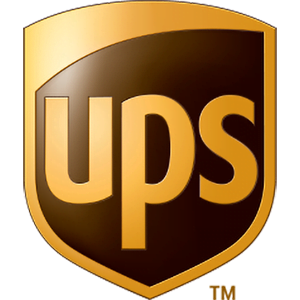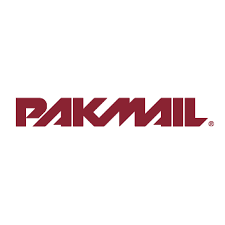The UPS Store Franchise in 2025: Costs, Fee & FDD
Explore the investment potential of The UPS Store franchise! Discover startup costs, revenue insights, and the comprehensive support system that makes this the largest retail shipping franchise globally. Click to learn if it’s the right fit for you.
Table of Contents:
The UPS Store, originally founded as Mail Boxes Etc. in 1980 by Gerald Aul and Pat Senn, has grown to become a cornerstone of the retail shipping and business services industry. Acquired by UPS in 2001 and rebranded in 2003, the franchise leverages the strength and reliability of UPS, one of the world’s largest and most trusted logistics companies. This rebranding elevated The UPS Store to a prominent position in the industry, making it synonymous with dependable, professional service. The UPS franchise stands out due to its comprehensive franchise model, offering potential ups store franchise opportunities for those interested in joining a well-established network.
At the heart of The UPS Store are its comprehensive shipping solutions, which cater to both domestic and international needs. Beyond shipping, the franchise offers a variety of essential business services including packaging, mailbox rentals, printing, copying, and notary services. These ancillary services broaden the appeal to small business owners, busy professionals, and everyday consumers needing reliable business solutions. The core customer base includes individuals and small to medium-sized enterprises looking for convenience and efficiency in managing their logistics and business operations. The ups store network ensures that these services are consistently delivered across all ups store centers, providing ups store owners with a competitive edge.
Today, The UPS Store boasts a robust presence with over 5,000 locations across the United States, Puerto Rico, and Canada, making it the largest retail shipping franchise globally. Each day, these locations serve thousands of customers, providing a wide array of services tailored to meet the varying needs of their clientele. The franchise’s widespread presence and strong brand recognition ensure a steady flow of customers seeking both personal and professional shipping and business solutions. This extensive network supports the ups store franchise cost by offering franchisees access to bulk purchasing power for office supplies and other essential resources, reducing additional costs.
The UPS Store provides an exceptional support system for its franchisees, starting with an extensive training program. New franchise owners undergo a comprehensive training regimen that covers all aspects of running a UPS Store, from operations and customer service to marketing and financial management. Additionally, ongoing support includes regional workshops, online resources, and a dedicated corporate support team ready to assist with any challenges. This robust support structure is designed to ensure that franchisees have the tools and knowledge needed to succeed and grow their businesses. Franchise financing options are also available to help potential owners manage initial investments and operational costs effectively.
Overall, The UPS Store offers a compelling opportunity for potential franchisees, combining a well-known brand, a diverse range of services, and a comprehensive support system to help ensure long-term success. The advantages of joining the UPS franchise are clear, with a proven business model, strong customer trust, and a network that supports growth and profitability.

The UPS Store Franchise Insights
- Global Reach: With over 5,000 locations in the U.S., Puerto Rico, and Canada, The UPS Store serves as the largest retail shipping franchise in the world.
- Daily Foot Traffic: On average, each location handles hundreds of customer interactions daily, highlighting the brand’s strong and consistent consumer demand.
- Franchise Growth: The UPS Store has experienced steady growth, adding roughly 100 new locations annually, showcasing the ongoing expansion and opportunity within the franchise network.
- High Brand Recognition: The UPS Store benefits from the powerful brand equity of UPS, recognized by over 90% of American consumers.
- Diverse Revenue Streams: Beyond shipping, services like printing and mailbox rentals contribute to a diversified income, with printing services alone making up nearly 20% of the franchise’s revenue.
- Extensive Training: New franchisees receive 72 hours of classroom instruction and 80 hours of in-store training, ensuring they are well-prepared to manage their business.
The UPS Store Franchise Key indicators
Loan Success Ratio
Over 200:1
Total U.S. Franchised Units
5,232
3-Year Failure Rate
3%
vs industry 4%
Sales-to-Investment ratio
2.3:1
How much does it cost to open a UPS Store franchise?
Understanding the potential investment size and capital requirements is crucial when considering opening a UPS Store franchise. These financial commitments, including initial franchise fees, equipment costs, and ongoing operational expenses, impact the feasibility and profitability of the venture. Thoroughly evaluating these factors ensures that potential franchisees are prepared for the financial responsibilities and can make informed decisions about their ability to sustain and grow the business, ultimately contributing to long-term success.
Min & Max Investment
Opening a UPS Store franchise involves several key costs, which are outlined in Item 7 of the Franchise Disclosure Document (FDD). You can see a breakdown of the costs to open a UPS Store below from the most recent Item 7 below:
| Type of Expenditure | Minimum Investment | Maximum Investment |
|---|---|---|
| Initial Franchise Fee | $29,950 | $29,950 |
| Initial Marketing Plan Fee | $7,500 | $7,500 |
| Design Fee | $3,000 | $3,000 |
| Site Survey | $1,700 | $1,700 |
| Center Development Fee | $7,000 | $7,000 |
| Initial Training Fees | $7,000 | $8,500 |
| Travel and Living Expenses While Training | $3,000 per person | $4,000 per person |
| Site Rent and Security Deposit | $4,500 | $18,000 |
| Leasehold Improvements, Construction Costs, Signage, Furniture and Décor Items | $64,480 | $249,283 |
| Computer Hardware/Installation/Freight | $11,385 | $15,475 |
| Digital Media | $4,081 | $4,081 |
| Optional Keyless Entry | $0 | $944 |
| Annual Technology Development and Support Fee | $2,304 | $2,304 |
| Software | $3,489 | $5,489 |
| Printer Lease | $544 | $1,749 |
| Time-Saving Kiosk | $1,760 | $1,784 |
| Other Equipment | $9,422 | $38,031 |
| Start-Up Supplies | $6,180 | $9,155 |
| Utility Deposits | $900 | $3,000 |
| Insurance | $1,000 | $15,000 |
| Additional Funds – 3 months | $40,000 | $70,000 |
| Total | $209,195 | $495,945 |
Item 7 in the Franchise Disclosure Document (FDD) is the “Estimated Initial Investment” section. It outlines the total costs a franchisee can expect to incur when starting a franchise, including the initial franchise fee, equipment, inventory, real estate, and other startup expenses. This section is crucial because it provides potential franchisees with a detailed understanding of the financial commitment required, helping them assess affordability and plan their investment strategy effectively.
Required Capital
To open a UPS Store franchise, the following financial requirements are typically needed:
- Initial Capital Investment The total initial investment required to open a UPS Store ranges from approximately $209,000 to $496,000. This range covers expenses like franchise fees, equipment, leasehold improvements, and initial inventory. Assuming that you will finance your UPS Store investment, you should plan to have 20% of the total investment amount in the form of equity (cash) for the investment.
- Liquid Assets Prospective franchisees are generally required to have at least $75,000 in liquid assets. This ensures that the franchisee has enough cash on hand to cover initial operating expenses and any unforeseen costs.
- Net Worth The required minimum net worth is typically around $150,000. This demonstrates the financial stability of the potential franchisee and their ability to support the business financially.
These figures provide a general idea of the financial commitment needed to start a UPS Store franchise. It’s always best to consult directly with The UPS Store franchising department for the most accurate and up-to-date information.
How much does a franchise owner of The UPS Store make?
Calculating the salary of a UPS Store franchise owner involves analyzing gross sales to determine total revenue, assessing operational efficiency to understand profit margins, and accounting for franchisor fees and additional expenses such as rent, utilities, and payroll. Effective management of these factors can significantly impact the profitability and financial success of a UPS Store franchise owner. This comprehensive financial analysis helps estimate net profits, from which the owner’s salary can be derived. A clear understanding of these factors ensures accurate salary projections and financial planning for sustainable business operations.
The UPS Store Revenue & Gross Sales
In 2023, The UPS Store franchises achieved a median gross sales of $691,869, reflecting a 2% increase from the previous year. This strong financial performance underscores the brand’s robust consumer demand and potential for solid returns for franchisees.
Which key factors impact the average revenue performance of The UPS Store franchisees?
The stabilization of U.S. franchisee median gross sales revenue for The UPS Store from 2022 to 2023 can be attributed to several key factors. Firstly, the increased demand for e-commerce and online shopping continues to drive the need for reliable shipping and packaging services, which The UPS Store excels in providing. Additionally, the franchise’s diversified service offerings, such as printing, mailbox rentals, and notary services, help mitigate revenue fluctuations by catering to a broad customer base. Effective franchisee support and training programs also ensure consistent service quality and operational efficiency across locations. Furthermore, the brand’s strong reputation and extensive market presence contribute to sustained customer loyalty and repeat business, supporting revenue stability.
The UPS Store Franchise Operational Costs
If you were to open a UPS Store franchise, here are the key primary ongoing operational costs you should consider:
- Lease/Rent Monthly payments for the commercial space where your store is located.
- Employee Wages Salaries for your staff, including any benefits or payroll taxes.
- Supplies and Inventory Regular replenishment of shipping supplies, packaging materials, and other inventory items.
- Utilities Costs for electricity, water, heating, cooling, and internet services.
- Royalty Fees Typically around 5% of your gross monthly sales, paid to The UPS Store as part of the franchise agreement.
- Marketing Fees Contributions to national and local marketing funds, usually around 2.5% of your gross sales.
- Insurance Coverage for general liability, property, workers’ compensation, and other necessary insurance policies.
- Maintenance and Repairs Upkeep of equipment, fixtures, and the store premises.
- Technology and Software Costs for POS systems, computers, software licenses, and maintenance.
- Professional Services Fees for accounting, legal, and other professional services.
Carefully managing these ongoing operational costs is crucial to ensuring the profitability and success of your UPS Store franchise.
The UPS Store Franchise Fees
Owning a UPS Store franchise is different from owning an independent, non-franchised business. All franchises tend to charge ongoing fees that franchisees are required to pay to operate. UPS Store requires their franchisees to pay the below fees:
- Royalty Fee This is a monthly fee paid to UPS Store, typically calculated as a percentage of gross sales. For UPS Store, this fee is usually 5% of the store’s monthly gross sales.
- Advertising and Marketing Fees Franchisees are required to contribute to both national and local advertising funds. The national advertising contribution is generally 2.5% of gross sales, while UPS Store Marketing contributions can vary but are currently set at 1% of gross sales.
- Additional Fees There are additional fees for training programs, technology, and other items provided by UPS Store that may be applied.
These ongoing fees are essential to consider when planning the financial aspects of owning and operating a UPS Store franchise. They cover the costs of brand support, advertising, and ongoing operational assistance provided by UPS Store.
The UPS Store Franchise Earnings
The earnings of a UPS Store franchise owner can vary significantly based on a variety of factors including location, sales volume, operational efficiency, and cost management. However, on average, The UPS Store franchise owners can earn a significant income if they have the right location and operational performance.
The UPS Store franchisees have a median gross sales of $691,869. Based off of the median gross sales, we can estimate a UPS Store franchisee makes $124,536 in estimated earnings (EBITDA) per year, assuming that the franchisee is an owner-operator in the location. This means that you can consider the salary of a UPS Store franchise owner to be roughly $124,536 before interest, taxes, depreciation, and amortization (EBITDA).
If the franchisee is semi-absentee, then earnings will be significantly lower based off of the costs of having a hired manager.
How to Open a UPS Store Franchise
Here’s a detailed overview of the process and steps involved in becoming a UPS Store franchisee, from initial inquiry to starting operations:
- Research and Initial Contact You or your franchise specialist submits an initial inquiry basic information about your interest and background. You should also conduct thorough research on the franchise, including seeing all of the information available on the Vetted Biz franchise intelligence platform, including access to the most recent Franchise Disclosure Document (FDD).
- Franchise Application Complete and submit the franchise application form. This will typically require personal, financial, and professional information.
- Preliminary Qualification The UPS Store franchising team will review your application and conduct an initial qualification to assess your financial stability and suitability as a franchisee.
- Initial Meeting If you pass the preliminary qualification, you’ll be invited to an initial meeting or phone call with a franchise development representative to discuss the opportunity in detail.
- Franchise Disclosure Document (FDD) You will receive the Franchise Disclosure Document, which provides detailed information about the franchise, including financial performance, fees, and obligations. Review this document thoroughly.
- Discovery Day Attend a Discovery Day event at The UPS Store headquarters. This event allows you to meet the corporate team, ask questions, and get an in-depth understanding of the business operations.
- Financing and Site Selection Secure financing for your franchise through personal savings, loans, or third-party financing options. Work with The UPS Store’s real estate team to find and approve a suitable location for your store.
- Franchise Agreement Once financing and site selection are in place, sign the Franchise Agreement. This legally binds you to the terms and conditions of operating a UPS Store franchise.
- Training Program Participate in a comprehensive training program that includes both classroom instruction and hands-on training at an existing UPS Store location. This training covers all aspects of running the business, including operations, customer service, marketing, and financial management.
- Store Build-Out Oversee the build-out and setup of your store location, including interior design, equipment installation, and inventory stocking. The UPS Store provides support throughout this process to ensure your store meets brand standards.
- Pre-Opening Support Receive ongoing support from The UPS Store’s corporate team as you prepare for your grand opening. This includes marketing assistance, operational guidance, and any additional training needed.
- Grand Opening Launch your UPS Store with a grand opening event to attract initial customers and generate buzz in the local community. Utilize the marketing strategies and resources provided by The UPS Store to ensure a successful start.
- Continuous Support After opening, benefit from continuous support, including field visits, regional workshops, online resources, and a dedicated corporate support team to help you navigate any challenges and grow your business.
By following these steps, you can successfully become a UPS Store franchisee and start your journey in the retail shipping and business services industry.
Pros & Cons
Pros
Strong Brand Recognition: The UPS Store benefits from the strong brand equity of UPS, which is recognized and trusted by consumers worldwide.
Diverse Revenue Streams: Offers a variety of services beyond shipping, such as printing, mailbox rentals, and notary services, allowing for multiple income sources.
Established Business Model: The UPS Store has a proven and established business model with a track record of success, reducing the risks associated with starting a new business.
Large Network: Being part of a network of over 5,000 locations provides access to collective resources, bulk purchasing power, and a sense of community among franchisees.
Marketing Assistance: Benefit from national and local marketing campaigns designed to drive traffic and increase brand awareness.
Growth Potential: With the ongoing growth in e-commerce, there is a continuous demand for reliable shipping and business services.
Cons
Competitive Market: The retail shipping and business services market is competitive, with other established brands and local businesses offering similar services.
Operational Hours: Running a UPS Store can require long hours, including weekends, to meet customer needs and manage the business effectively.
Economic Sensitivity: Business performance can be influenced by economic conditions, with fluctuations in consumer spending affecting revenue.
Location Dependent: Success can be highly dependent on the store’s location, and securing a prime spot can be challenging and expensive.



